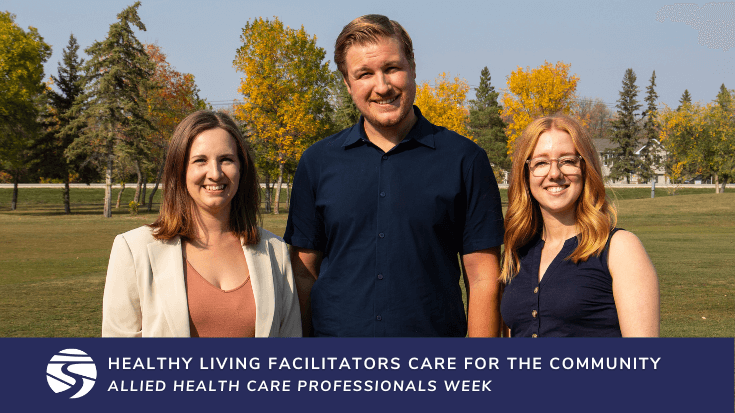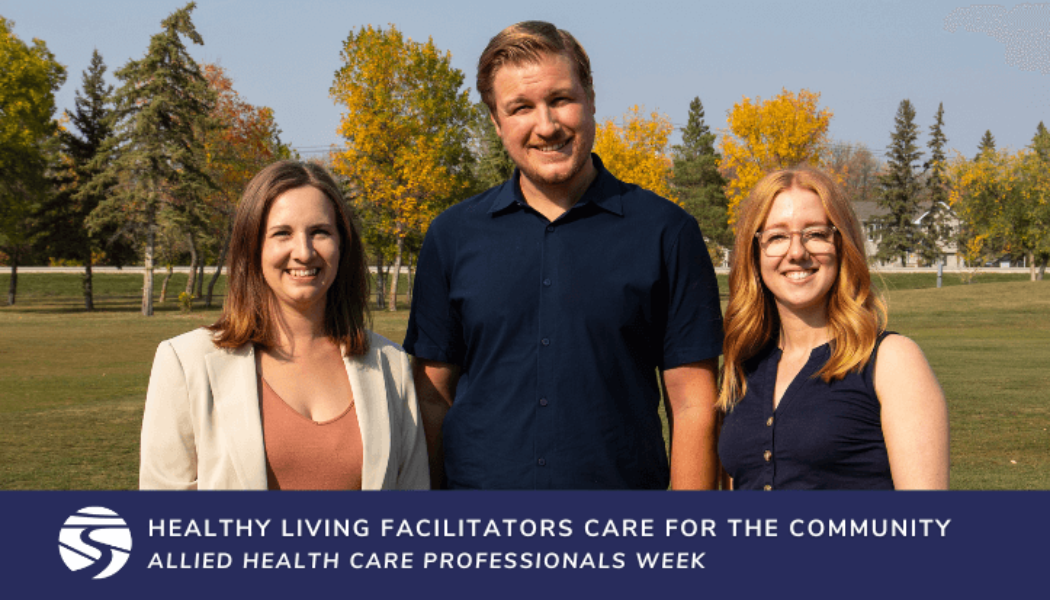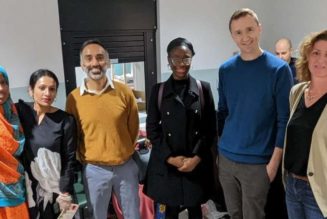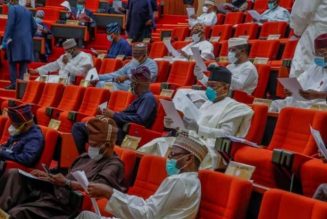Improving health outcomes through prevention, support and education

‘It takes a village’.
A common phrase that refers to the collective effort of raising and taking care of a child…but in that outpouring of support, who is responsible for taking care of the needs of the villagers? In Southern Health-Santé Sud, it’s a group of Healthy Living Facilitators that step in, offering proactive tips and individualized resources to meet the needs of the region’s diverse communities.
“It’s really about taking a primary prevention approach to improve people’s lives,” said Jeremy Brooks, a kinesiologist who works as a Healthy Living Facilitator in SH-SS. “We try to take an upstream approach that will prevent problems before they happen. We look at how we can create an environment or circumstance where people will naturally follow healthier lifestyles.”
Meeting the needs of the community is at the centre of the team’s work, said Brooks as he reflected on the important role programs and community leaders play in the health and wellbeing of their population, even if they might not see the day-to-day impact of their work.
“There are some really great people in communities that are doing wonderful things and they don’t realize how much the work that they are doing positively impacts the health of their community members. It’s really exciting when you get the chance to sit down with them and show them evidence of how their contributions are affecting the lives of so many.”
Improving health outcomes for an entire community is not a simple task, and it’s difficult to see obvious improvements since long-term positive health outcomes are just that, longer-term.
That doesn’t stop other Healthy Living Facilitators, like dietitian Justine Foster and social worker Leanne Fay, from coming up with innovative ways to shift health determinants in communities that may not immediately recognize that their unhealthy habits, aren’t their fault.
“People have been sold a narrative for a long time that they are responsible for their own health choices, which isn’t always the case,” said Foster. “We are influenced by many external factors like our neighborhood design and how that’s conducive to us making healthy choices, the food landscape, employment opportunities, education, and social constructs that have been shaped by colonial systems have ultimately influenced health options for people.”
“As healthy living facilitators we all have the same job, but our communities are so unique,” she added. “What their priorities are, the barriers they face, and where they’re at in the work and their knowledge of how a system really influences how their health is shaped, these all contribute to differences in our work.”
It’s these individual needs and community differences that prompted SH-SS to divide Healthy Living Facilitators up amongst communities across the region. Together, the teams tackle each obstacle with a unique population needs-based lens, aided by every member of the team coming from a different professional background.
“Having diverse knowledge, education, experience and backgrounds that come from different allied health professionals makes our team unique and able to bring that evidence to community,” said Fay.
It’s not as simple as teaching community leaders how to change their members’ habits, she added. Programs and resources are needed to support meaningful habit changes. Big decisions are made collaboratively, involving Healthy Living Facilitators and community leaders.
“It’s great to be able to fund communities with grants that support change, but it’s just as rewarding to support initiatives with evidence and advocacy,” added Fay, sitting higher in her chair with enthusiasm. “To be invited to sit around the table with community leaders, brainstorming possible solutions to whatever kind of problems they’re looking at… it’s really, really rewarding. You get to work with people who are just so dedicated to their community!”
Healthy Living Facilitators are committed to a holistic approach to health that places significant emphasis on preventative measures that can make individuals less likely to need services or interventions down the road. The teams’ own directive speaks to this focus, saying “We bring our knowledge and work with communities’ own expertise on what keeps them healthy to develop community driven solutions that target the social determinants of health. If we can prevent illness and address inequities, the whole community benefits with less poverty, happier and more active people, employment, and safely housed individuals.”
It’s a mandate that Brooks, Foster, Fay and six other Healthy Living Facilitators, embrace each day, committing themselves to supporting Southern Manitoba communities to achieve a better, healthier tomorrow.
From November 5 to 11, Manitoba’s health service delivery organizations are celebrating the diverse and highly specialized skills of our province’s allied health professionals. Representing nearly 200 disciplines working in every sector and area of our health system, allied health professionals are vital members of our health-care teams.









